In the College of Arts & Sciences, we are proud to celebrate our first-generation community through a collection of stories! We honor our students, alumni, faculty, and staff, and their many contributions to our university community and beyond.

Perizat Kanatkyzy Abdigali
Student – Master of Science in Applied Chemical Science and Technology
What does it mean to you to be a first-generation student?
Flying over continents and packing our entire lives into four luggage with my husband and our four-year-old daughter was one of the most challenging yet meaningful moments of our life. Our hearts were full of hope for a brighter future. Being a first-generation master's student and the first in my family to study in the United States carries huge pride for my family in Kazakhstan. My parents are hardworking people who raised me and my brother on average incomes. In our home, education was always the number one priority; however, I always knew deep inside that I could do something more than average. No one had ever shown me that there could be different paths in life, but I believed there was more waiting beyond what I saw around me.
My passion for chemistry and English became my compass, opening new doors and driving me step by step to where I am today – the University of Washington. To me, being a first-generation student means breaking barriers and carrying my family’s dreams across borders and transforming them into opportunities. Most importantly, it means showing my daughter that with hard work, courage, and education, anything is possible. To every first-generation student: we are here not only to earn a degree but also to write our own family's story and create a legacy for our children and future generations to come.

Anna Frank
Student – B.A. American Indian Studies; B.A. Environmental Studies
What does it mean to you to be a first-generation student?
I see being first-gen as powerful because it represents the first step in changing my life and the lives of my loved ones. It motivates me to pursue the goals I have always wanted, reminding me that I have the power to create something beautiful. Yes, it is difficult and will continue to be so because first-gen students are changing the narrative and creating a future that challenges others to strive for their own dreams and goals.
Where do you see yourself after graduation?
I see myself surrounded by my communities. As a first-gen Native and Hispanic student, I want to give back to my community by working in the Seattle area, eventually returning home to be a voice for others. I hope to create a space where the youth can envision themselves reaching a higher level of education.
What insights would you share with current and future first-gen students?
"Do something that makes you happy." Life is short, so enjoy every moment. Simple tasks may feel mundane, but it's those everyday decisions, actions, and memories that make you who you are. Learn to give yourself grace and celebrate your accomplishments. Find the beauty in the struggles but remember that it's the end goal that matters most. Always remember where you came from and that you are in control, so make it worth putting everything into your dreams and goals. What you put into life is what you'll get out of it.

Andri Fernanda
Student – Ph.D. Asian Languages & Cultures
What does it mean to you to be a first-generation student?
Being a first-generation student is both a deeply personal achievement and a family milestone. This isn't just my dream — it's a collective dream built upon sacrifices my parents have made since I was a kid. I still remember when my father shared his story of desperately wanting to go to college. However, my grandparents only had enough money to send one of their eight children to university, and he gave up his spot for his older brother. Long story short, when I graduated from high school, my mother gave me a choice: she could buy me a motorcycle — something I'd never had — or I could use that money to leave our small island and pursue higher education, as there was (and still is) no university in my hometown. Without hesitation, I chose the latter — it was what I truly wanted, while also fulfilling my parents' dream of seeing their son earn a bachelor's degree; it was the very dream that had been out of their own reach in their youth. This journey has been a profound challenge for me, particularly for someone born and raised on a small island. Now, looking back, all the exhaustion, struggles, and tears have been worth it; I am immensely proud and grateful to be a Ph.D. student in Asian Languages and Cultures at the University of Washington, funded by a Fulbright scholarship.
What brought you to the University of Washington?
Dreams, passion, curiosity, and a hunger for exploration — these are what brought me here. The University of Washington isn't just one of the top public universities in the U.S.; it's also one of the few institutions with a dedicated focus on Southeast Asian studies, which is rare to find in the U.S. What truly solidified my decision was discovering that UW's Asian Languages and Literature program offers language courses in two distinct categories: for heritage and non-heritage learners. In my experience, this is the only place I've found that approaches language learning with such thoughtful detail and care for its students' diverse backgrounds.
Where do you see yourself after graduation?
I see myself continuing to walk the same path, sharing what I have learned with greater wisdom, and smiling. I see our dreams — mine and my family's — creating ripples far beyond just us. I will continue to give back to my local and global community — because knowledge is the one commodity that never diminishes when shared; instead, it multiplies and grows.
What insights would you share with current and future first-gen students?
First, I want to say congratulations to all of you. You are remarkable for becoming the first trailblazer in your family's intellectual journey. I know it's hard because along this path, you've fallen, gotten hurt, exhausted, and shed many tears. However, you've finally made it to this point. Celebrate that victory and keep that fire burning as you chart the educational trajectory for your family's future generations.

Jackie Hernandez
Student – B.A. Communication
What does it mean to you to be a first-generation student?
Being a first-generation student holds great significance for me, as I am the first in my family to attend the University of Washington. This is a major milestone, and I feel privileged to be part of such an esteemed institution. One of the reasons I chose the UW is because of my older sister, who graduated in 2021. Her journey inspired me, and now it’s my turn to be a student here. I've always been a creative person, which is why I decided to major in Communication. This major allows me to explore various fields, and I hope to eventually work for a company in a creative capacity after graduation.
What insights would you share with current and future first-gen students?
My advice for first-generation students is that you do belong here. Don't get discouraged by failing an exam; you will fail many times, but don't let that defeat you.

Dan Guyer
Student – Ph.D. Mathematics
What does it mean to you to be a current first-generation student?
At the risk of being cliché or dramatic, I do feel that being first-generation feels a bit like being a frontiersman with a dream. One must navigate with their own tools, ask strangers on the trail for directions, and sometimes clear brush to create a new trail. After clearing a new path, I think that there comes a sense of responsibility and desire to try to keep it maintained for others to walk.
What brought you to the University of Washington?
I was struck by how friendly, communicative, and academically strong the math department was. Additionally, I enjoy rock climbing, running, slacklining, and the (comparatively) good weather of Seattle.
Where do you see yourself after graduation?
Right now, I would like to teach mathematics at a liberal arts college. Ideally, it would involve working on research with undergraduates and finding a quality community in the surrounding area.
What insights would you share with current and future first-gen students?
Ask multiple people for their opinions and try to understand why they are giving you certain pieces of advice so that you can make it fit best for your goals. Talking with professors, advisors, graduate TAs, and peers can all help with navigating (the many) academic logistics. To finish, I want to encourage you all to recognize the virtues that come from each of your backgrounds. There is a strength that comes from being first-gen, and I hope that you all can recognize it within yourselves.
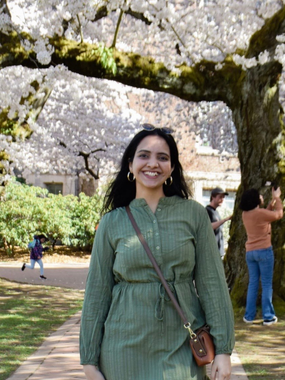
Anjali Yadav
Student – Ph.D. Asian Languages & Literature
What does it mean to you to be a first-generation student?
Being a first-generation student and the first in my family to attend college in the United States means feeling lost, but in a transformative way. It represents building a path that no one in my family has ever walked before. I remember strolling across the UW campus during my first quarter, treading on crisp autumn leaves, and realizing that I have built a life here that once seemed impossible. I don't say this often, but I am really grateful for how far I have come. For current and future first-gen students — remember, your background is your strength.
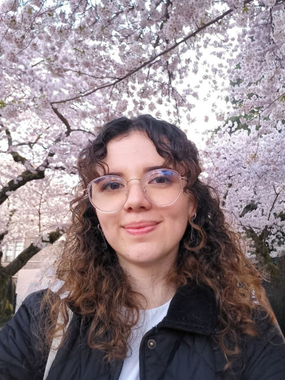
Laura Quinche
Student – Ph.D. Biology
What does it mean to you to be a first-generation student?
Being a first-generation student means figuring out how to navigate a world that’s completely new to my family. It's exciting, but also a little scary at times. It fills me with pride to know that I’m opening doors that once felt out of reach. Being an international student adds another layer to it. You’re not just figuring out your place in science, but in a whole new place and culture. Many times, when I’m in the lab or out in the field, I think about my parents and grandmothers and how their hard work made it possible for me to be here. For me, being first-generation is about carrying that history forward and showing that people like me do belong in science.
What brought you to the University of Washington?
I came to the University of Washington because I wanted to keep asking the questions that first made me fall in love with biology: how animals adapt, survive, and interact with their environments. When I met my mentors, I knew the UW was the right place for me. It felt like joining a community that not only values research and discovery but also welcomes diversity. Being here has given me the chance to grow as both a scientist and a person.
What insights would you share with current and future first-gen students?
It’s totally normal to feel out of place sometimes; I still do. Finding people who support you and believe in what you’re doing makes a huge difference. Your background isn’t something to hide; it’s what gives you a unique way of seeing the world. Your story and background are part of what makes you valuable in any space.
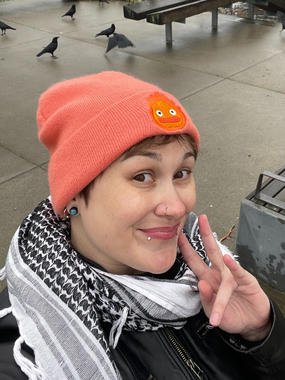
CS W. Henry
Student – M.A. Korea Studies; Masters of Public Administration
What does it mean to you to be a first-generation student?
Being a first-generation student means I am carrying forward the hopes of my grandparents, who raised me with love, resilience, and quiet determination. I’m not just earning a degree for myself but also so that I can be a good future Elder in my Indigenous community.
What brought you to the University of Washington?
I visited the University of Washington as an undergraduate TRIO McNair Scholar to present at a research conference. I was captivated by the campus, the research community, and the flora and fauna of the Pacific Northwest. As an out-of-state student, I finally got my chance to come here thanks to my VA benefits, and I’m grateful to be here.
Where do you see yourself after graduation?
After graduation, I hope to return to my home state of Michigan and open my own nonprofit ranch and animal sanctuary. I currently volunteer at Pasado’s Safe Haven in Monroe, Washington, where I take dogs on walks and provide enrichment and care for the sanctuary’s farm animals. Inspired by that work, I want to create a sanctuary of my own: a safe place for animals rescued from abuse or cruelty cases to heal, feel safe, and live out their lives in peace and love.
What insights would you share with current and future first-gen students?
You don’t have to have everything already figured out to belong here. You are enough just by virtue of being you. Ask for help, build community, and remember that the path you’re walking honors not just your own story, but the ancestors who made it possible.
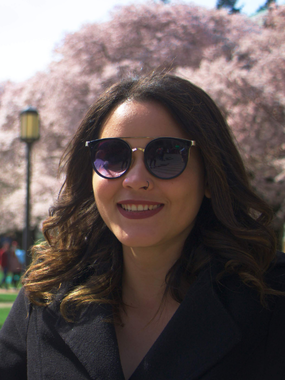
Francine Myles
Student – B.S. Economics; B.A. Political Science
What does it mean to you to be a first-generation student?
For me, being a first-generation student means inspiring my community and proving that no one is defined by the place they were born. Life will not always be easy, but we all have the power to decide what we want to do with it. I want to show the next generation in my family that I may be the first, but I will not be the last. It’s unfair that someone grows up believing their destiny is already written; where you come from should not limit where you can go.
What brought you to the University of Washington?
I decided to come to the UW after participating in the Path to UW seminar during the summer of 2023. During that experience, I met friends for life, felt truly heard and included, and realized that the UW offers the perfect environment for me to grow both personally and academically.
Where do you see yourself after graduation?
After graduation, I see myself working in economic development, using data to tell stories about human behavior and to inform better policy decisions. My internship at Futurewise, where I helped advocate for Transit-Oriented Development (TOD) and Rent Stabilization, showed me the power of community action. That experience strengthened my belief that when we come together with a shared purpose, we can create meaningful and lasting change.
What insights would you share with current and future first-gen transfer students?
Believe that you belong here. Every challenge you face is proof of your strength, not a sign of weakness. Don’t be afraid to ask for help — you’re not alone, and there’s a whole community rooting for your success.
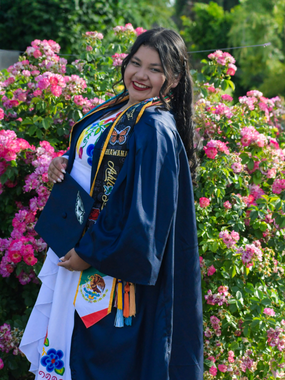
Ashlee Senda
Student – B.S. Biology
What does it mean to you to be a first-generation student?
I am a first-generation Chicana student pursuing a career as an Emergency Medicine Physician at the University of Washington. My journey has been nothing short of hard work and continuous self-improvement. As the first and eldest daughter of my family, it was difficult to leave everything behind and navigate life on my own. This challenge reminded me of my parents’ own journey. Like them, I faced the unknown of living in a new place. However, my parents did not have the privilege to study at a prestigious university, the opportunity to pursue their dreams, or even the choice of where to live. Recognizing this, I know that being a first-generation student is a privilege made possible by my parents’ sacrifices, and this motivates me to continue striving.
Being a first-generation student also means doing what has never been done before. To be an example to my sisters and to all my primas. A pedestal built of grades and tears, triumphs and mistakes. To be a first-generation student means living up to the name that got you into the university. As a first-generation student, this title comes with pride and sacrifice, and it is written in the stars that my dreams will come true, however long it will take.
What brought you to the University of Washington?
Growing up in Pasco, Washington, I lived in a small Mexican community focused on the agricultural fields and picking cherries. Never in my life had I seen the romanization of cherry blossoms until I came for a college visit at the University of Washington. I spent around 12 hours working on my application to enter the University of Washington, and submitted my application. There was something about this university that I could not shake off, and I put my name in the ballot.
Reflecting back, this was the best decision I could have ever made. The beautiful demographic, the scenery, and the buildings. I am also close to my family and I have found my people through Mariachi, where I am a part of the players in the Mariachi Quinto Sol at the University of Washington. The University of Washington offers research opportunities and immense learning opportunities that helps prepare me to become a doctor.
This university exceeded every expectation I had of it. I look forward to completing my bachelors in biology at the University of Washington and getting involved in this great big city.
Where do you see yourself after graduation?
After graduating with my bachelor's degree in biology, I see myself beginning my journey at the University of Washington School of Medicine. I envision myself working part-time in the emergency department while doing innovative research on cellular biology. Interestingly enough, I also want to focus on immunology and its field. The journey to becoming a doctor is long, but I know that as long as I have my family, friends, and great mentors, I can achieve and overcome anything. After I am done with medical school, I plan on doing my residency in a hospital in Seattle.
What insights would you share with current and future first-gen students?
As a first-generation Chicana student, I tell everyone who looks like me, “Echale ganas y ponte las pilas." This very loosely translates to “Give it your all, and do not stop grinding.” We are the manifestation of hard work and a dream that our parents have. Become the most competitive candidate and the best version of yourself. Be the center of attention, take up space, and strive to be the person you look up to. This mentality can be difficult, but the reward for your hard work is so worth it. I have this mentality, and the number of scholarships I earned, the honors I received, and even the experiences I was able to take part in were all thanks to that hard work I put in. Do the things you love and invest in those skills so that in the long run, you can look back and be thankful you put in the work.
I cannot stress enough the importance of not letting the sacrifice your parents made go to waste. Fulfill their dreams. This advice has helped me when I am doubting myself and my ability to achieve my dreams. I think of my family, and every time they made a sacrifice to give me the opportunity to study. Both of my parents did not even finish high school; they worked in the fields, and every minimum wage job was available. Thanks to my parents, I can have the privilege of only worrying about studies. I use this as fuel on the days that I feel as though I cannot keep up. It is my drive, and the sole reason why I keep succeeding. To any and all future first-generation students with similar backgrounds as me, use that sacrifice as fuel for everything you do. Believe me, it will help you get much farther than you ever imagined and overcome every barrier in your way.

Anisa Navarro
Alum – B.A. Psychology; Medical Anthropology and Global Health with Interdisciplinary Honors, 2024
What does it mean to you to be a first-generation graduate?
To be the first in my family to go to college means breaking generational cycles and healing generational trauma. While I may be the first in my family to graduate, I most certainly will not be the last. In all honesty, it feels surreal that after all my hard work from high school and undergrad that I can say I’m officially a college graduate. The journey was emotional, lonely, and overwhelming; yet it has also been meaningful and rewarding. To be a first-generation college graduate is to be the manifestation of my ancestors' dreams.
What insights would you share with current and future first-gen students?
Over the next four years (or however long it takes), you will face various trials and tribulations. However, it’s important to remind yourself that you attend one of the most prestigious universities because YOU BELONG HERE. Never let the people, grades, or insecurities tell you otherwise. Remind yourself that any doors that are closed were not meant for you, and that any new path that opens is meant for you because you are ready and deserving of it.

Julie Feng
Shared in 2024
Student – Ph.D. Communication, UW Seattle
M.A. Cultural Studies, UW Bothell, 2021
B.A. English: Creative Writing, UW Seattle, 2013
What does it mean to you to be a current first-generation student?
Being the first person in my family to go to college means that I enter every space as an excavator, a fugitive, a conspirator, a fighter, a bridge builder, a fire starter, and an advocate for myself and for my communities.
What brought you to the University of Washington?
I'm a triple Husky — I got my B.A. in English/Creative Writing, my M.A. in Cultural Studies, and now working on my Ph.D. in Communication at the UW. It's important to be rooted in a local community. Although I've lived in other places in the world and I will again, I find meaning in having a home here.
Where do you see yourself after graduation?
Whatever pathway I take after graduation, it'll always include research, art, pedagogy, and cultural work towards collective liberation. I hope to be a scholar of stories who makes a change in the world!
What insights would you share with current and future first-gen students?
You're not just on the right path, you are paving the path. You're not lucky to be here, here is lucky to have you.

Jacob Russell
Shared in 2024
Student – Ph.D. Chemistry
What does it mean to you to be a current first-generation student?
As a first-generation graduate — and now, a first-generation graduate student — I know that I have broken barriers that are seemingly insurmountable. Not only am I the first person in my family to earn a college degree, but I did so in only three years. I also began my undergraduate career amid the COVID-19 pandemic. All odds were against me, and yet I was persistent in achieving as much as I could as an undergraduate. That is what being a first-generation student is all about; it is anything but easy, and this underscores the reward of resiliency. Now, as a graduate student, I often reflect on the difficulties I faced as an undergraduate, such as working over 40 hours per week on top of full-time studies. Situations like these are all too common amongst first-generation students. Being successful as a first-generation student speaks volumes about your motivation, passion, and work ethic – all in the thick of extraordinary circumstances. These are valuable qualities that you bring to the table in your future career.
What insights would you share with current and future first-gen students?
Being a first-generation student can, at times, make it feel like much is working against you. When you feel this way, I urge you to take advantage of the resources available at the UW. There is an entire first-gen community here at the UW, along with your advisors, who can support you in times like this. In terms of getting help with coursework, do so as early as possible, use all of the resources available to you, and explore ways that you can adapt to more active learning strategies to get the most out of your courses. Additionally, I wish more people shared with me early in my undergraduate career that your responsibilities as a student should be more than just showing up in the classroom and studying for exams. While this is certainly the priority, you should make the most of the endless ways to be involved in your university and community. Find the time to get involved in opportunities that you genuinely care about and that you feel make a difference. Finally, don’t be afraid of making a change to your career plans if your interests evolve as you dive into your studies. You have already broken boundaries as a first-gen student; you should get to do what you love for a career.

Teyloure Ring
Alum – M.A. International Studies: Russia, East Europe and Central Asia, 2015
B.A. International Studies: Europe: Russia, East Europe, and Central Asia, 2013
B.A. Russian Language, Literature, and Culture, 2013
Graduate Certificate: International Development Policy and Management
How did the experience as a first-generation college student impact your educational and career journey experience?
I grew up surrounded by strong role models. Being first-generation in college and corporate America, I actively sought out unofficial and official mentors. I am grateful for everyone who patiently shared their wisdom. My goal was to get into college; I hadn't thought much about what to do after I was accepted. With the encouragement of my family, classmates, professors, and colleagues, I have accomplished more than I thought was possible for myself.
What brought you to the University of Washington?
I came to the University of Washington after falling in love with the campus and Slavic languages on a field trip for World Languages Day with my high school Spanish class. I enrolled in Russian 101 without knowing a single word of Russian, but I was hooked. A member of the Jackson School shared information about the Ellison Center's Russian, East European & Central Asian Studies major and study abroad opportunities in our Russian 203 class. While studying abroad in St. Petersburg, Russia, I knew I wanted to return to the University of Washington for graduate school to study security in the region. With the help of an incredible committee, I published my master's thesis on the integration of cyber tools in Russian information operations in 2015.
What does it mean to you to be a first-generation graduate?
For me, being a first-generation graduate carries an immense sense of pride and responsibility. I am proud of my accomplishments, the hardships I overcame, and the mistakes I learned from. I can confidently say I would not be where I am today without my education and the support I received from my family, friends, and everyone at the University of Washington. I feel a sense of duty to pay it forward and help others achieve their college dreams.
What insights would you share with current and future first-gen students?
Move your mind and your body. Your time on campus is limited. Immerse yourself in a wide variety of experiences. You will build connections with your community and might find a new passion. I met a lot of great people and future colleagues through student organizations at the University of Washington. I highly recommend cheering on our Huskies from the student section of any sporting event. The sense of camaraderie with fellow fans is an indescribable part of the student experience.

Kimmy Nguyen
Alum – B.S. Medical Anthropology and Global Health, 2020
How did the experience as a first-generation college student impact your educational and career journey experience?
As a first-generation student, I had pressure to go to college right after high school, which shaped who I thought I should be. I had conflicting ideas about what success looked like and how to navigate higher education. This made me question what I wanted to study and the career field I wanted to go in. I knew I wanted to help my community but didn’t know what types of career paths I could take besides healthcare.
I remember my first quarter at UW, I took a prerequisite course for many STEM-related majors and felt so out of place around my peers. I quickly realized to even catch up with them I needed to do extra work as I was not used to the fast-paced, rigorous, and competitive learning environment.
Learning as I went, I sought various resources to support my academic journey as a first-generation college student. My experiences as a first-generation college student shaped my values of learning, growth, and community, which led to the start of my career working at various nonprofits and pursuing a Masters degree in Nonprofit Leadership.
What brought you to the University of Washington?
I was intrigued by the University of Washington’s high ranking in public education and the beautiful campus that I visited on field trips. Attending the University of Washington made the most sense for me. I was born and raised in South Seattle and Renton, so naturally I picked the cheaper option of staying in state which also allowed me to be closer to my family.
What does it mean to you to be a first-generation graduate?
Being a first-generation graduate is a huge privilege and accomplishment. Honoring those who came before me planted the seeds which allowed me to be where I am today. I am part of a legacy for future generations to be curious and achieve goals that they didn’t know were possible.
What insights would you share with current and future first-gen students?
I would share that you are exactly where you need to be. You are here for a reason and even if it feels unclear, push through and seek support. Push through the barriers, hardships, and imposter syndrome. There are so many resources out there to support you — take the initiative to seek them out. Find your community of support early on and lean on each other. You are resilient and I’ll be rooting for you on the sidelines!

Yasmine Gomez
Shared in 2024
Student – Ph.D. Feminist Studies, Gender, Women, and Sexuality Studies
What does it mean to you to be a current first-generation student?
Being a first-generation student means navigating a system and carving a life that was not possible for those who came before me in my family. Coming from a rural town in Texas on the border of Mexico, the roots of my family have been in the surrounding areas for over 300 years and my ancestors did not have access to formal education. This does not mean that my family did not have fulfilling lives or did not pass knowledge outside of institutions. In fact, I see those very ways of knowing as an integral piece of me. Because of this, I approach every day that I access education and challenge systems of learning within the university setting as a radical form of change which applies to my attendance at UW.
What insights would you share with current and future first-gen students?
Acknowledge your very real anxieties. College can feel like a very scary place where you encounter new situations, and it is normal to feel intimidated by a system that has never been navigated by you or your family. One small piece of advice that I can give is to find mentors and a community that you can turn to for support in your decisions. My biggest piece of encouragement that I tell myself every day is that you just existing in these spaces is a revolution. Do not be afraid to bring your whole self to the classroom. One of my favorite activists and scholars, Gloria Anzaldúa, said “I am a turtle, wherever I go I carry ‘home’ on my back” (1987). Be yourself and be unafraid of making mistakes along the way. You are worthy and you belong.

Bogdan Brunsh
Shared in 2024
Student – B.A. Psychology
What does it mean to you to be a current first-generation student?
I understand that being a Ukrainian, current first-generation student is a reflection of my family's resilience, support, and determination. Being the first person in my family to attend a prestigious institution such as the University of Washington allows me to honor my family's hard work.
What brought you to the University of Washington?
I have wanted to go to the University of Washington since I visited the Seattle campus when I was a child. I knew that being a part of such a diverse, prestigious community would be a life-changing experience for me.
Where do you see yourself after graduation?
After graduation, I see myself as a mental health counselor, working to support and empower teens through evidence-based counseling and community outreaches.
What insights would you share with current and future first-gen students?
To current and future first-generation students, I would like to say this: your unique experiences and perspectives are so valuable; they have the power to inspire. Remember, your story matters.

Keila Taylor
Shared in 2024
Student – Ph.D. Gender, Women & Sexuality Studies
What does it mean to you to be a current first-generation student?
It means I’m forging my own path. It means I am in the driver’s seat of my life. While that can be a scary experience, it is also an empowering one. I have really had to learn to listen to my heart and trust my intuition being a first-generation student. It’s led me to be on the cusp of completing my lifelong goal of becoming a doctor this year.
What insights would you share with current and future first-gen students?
I would encourage current and future first-gen students to not be afraid to ask questions and lean on people around you. There’s a lot that we don’t know about navigating academic spaces and so many of the mistakes I’ve made could have been avoided if I had the skills to communicate my needs. There is an abundance of support just waiting for you to tap in.

Linhang Huang
Shared in 2024
Student – Ph.D. Mathematics
What does it mean to you to be a current first-generation student?
Being a first-gen to me means having to navigate higher education largely on my own. I never take the chance to enter college and grad school for granted, and I'm really grateful for how far I've come. Not having direct guidance from people in my family with similar experiences can be challenging at times. But this whole journey from undergrad to pursuing a PhD has been incredibly rewarding.
What brought you to the University of Washington?
When choosing grad schools, the math department here really stood out to me with its excellent research faculty and the inclusive academic atmosphere. Plus, Seattle is a really vibrant city in a beautiful state, which was also a huge selling point.
Where do you see yourself after graduation?
I aspire to be a good mathematician and I'm still learning what that looks like for me. Thus, I'm open to career paths where I can use my education to make a meaningful impact. If possible, I also want to help bridge the opportunity gaps in higher education so more people can get the education they want.
What insights would you share with current and future first-gen students?
To current first-gen students: Give yourself a pat on the back! You should take pride in this impressive achievement. It is also important to find your community who can help you navigate this uncharted territory.
To future first-gen students: Believe in yourself. Being a first-gen can give you a unique and valuable perspective. Don’t be afraid to let your voice be heard.

Adrian Guerrero
Shared in 2024
Student – Ph.D. Chemistry
What does it mean to you to be a current first-generation student?
As a first-generation student, I take inspiration from my origins. My parents’ resilience in their work motivates me to work diligently while caring for my well-being. I am proud to hold my family and community close to my heart.
What brought you to the University of Washington?
I previously attended undergraduate school at a university in Southern California — where I am originally from — but I wanted to explore a new place for graduate school. The University of Washington gifted me the opportunity to study chemistry amongst other diligent students while exploring the beautiful city of Seattle.
What insights would you share with current and future first-gen students?
From my extended experience as a first-gen student, the most important thing is to acknowledge what you do not know. Treat every moment of confusion as an opportunity to build your collection of knowledge and every new environment or experience as a pathway to learn more about yourself.

Kimberly Il
Shared in 2024
Student – B.A. Law, Societies & Justice, Political Science
What does it mean to you to be a current first-generation student?
Being a first-generation student means breaking barriers and boundaries for myself and for others. I feel a deep responsibility to push myself to step outside of my comfort zone and enter uncharted territories to advocate for my community. This motivated me to create First Generation Leaders in Pre-Law (FGLL), a student organization dedicated to empowering first-generation, low-income undergraduate students on their legal journey. Through mentorship, resources, and networking opportunities, FGLL aims to make a meaningful impact for those navigating higher education and the legal field for the first time.
Where do you see yourself after graduation?
After graduation, I see myself going to law school to pursue my dream of becoming an attorney. I hope to give back to my community, pass down knowledge and be a role model for first-generation, low-income students.
What insights would you share with current and future first-gen students?
You are on a unique journey that stands on its own. In spaces of higher education, imposter syndrome can be all too common, but don’t let it diminish your abilities. Surround yourself with people who uplift, advocate, and support you. Your knowledge, cultural richness, and identity are invaluable assets to be celebrated every step of the way.
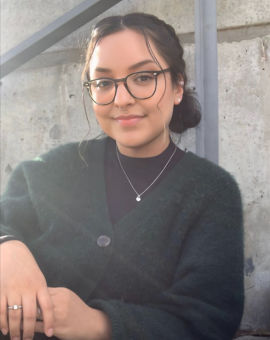
Yasmin Garfias
Alum – B.A. Psychology, 2021
Graduate Student – M.A. Special Education with an emphasis in Applied Behavior Analysis, 2025
What brought you to the University of Washington?
Being a transfer student, I attended multiple community colleges and another university before landing at the University of Washington. A close friend had shared their experience with the application process and was a great source of knowledge throughout my undergraduate journey. While many factors played a role, such as the innovative research and graduate program opportunities, I would attribute the peer connections I've gained throughout the process as what brought me to the UW.
How did your experience as a first-generation transfer college student impact your educational and career journey?
As a first-generation transfer college student, my experience has been marked by navigating a complex system with limited guidance. This experience has made me resilient, resourceful, and determined. It also pushed me to seek out mentors and support services on campus, and instilled the work ethic that I carry into my career.
What does it mean to you to be a first-generation graduate?
Being a first-generation graduate means breaking generational barriers and achieving higher education despite historical and socioeconomic challenges. It's a testament to our determination, cultural identity, and the importance of education by creating opportunities for ourselves and our communities.
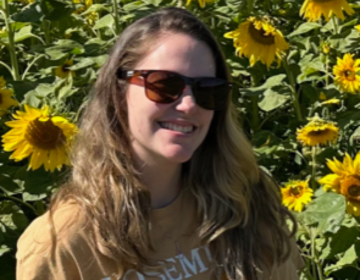
Kaitlynn Lilly
Shared in 2023
Student – Ph.D. Applied Mathematics, 2027
M.S. Applied Mathematics, 2023
What does it mean to you to be a current first-generation student?
It means a lot to me to be a first-generation student. While my path to higher education was not paved for me, I could not have trailblazed without the assistance of so many mentors along the way. I didn't realize how much I did not know coming into college. Now having been through it myself, I try my best to help guide other first-generation students through the process and pay it forward.
What brought you to the University of Washington?
I was fortunate enough to receive Ph.D. offers from 12 different programs, but what drew me to the University of Washington was the collaboration and community within the Applied Mathematics Department here. It was truly unmatched.
Where do you see yourself after graduation?
After graduation, I hope to secure a postdoctoral position at a university or national laboratory. However, no matter what position I end up in, I hope to continue mentoring college students in some sort of capacity.
What insights would you share with current and future first-generation students?
I would advise students to seek out various mentors to assist and guide them through their college experience. Having assistance from people who have been through this process before can prove incredibly valuable. I would also tell students to not count themselves out. You miss 100% of the shots you don't take and there is a reason you got into college in the first place. You are capable of anything you may put your mind to, even if no one before you has done it.
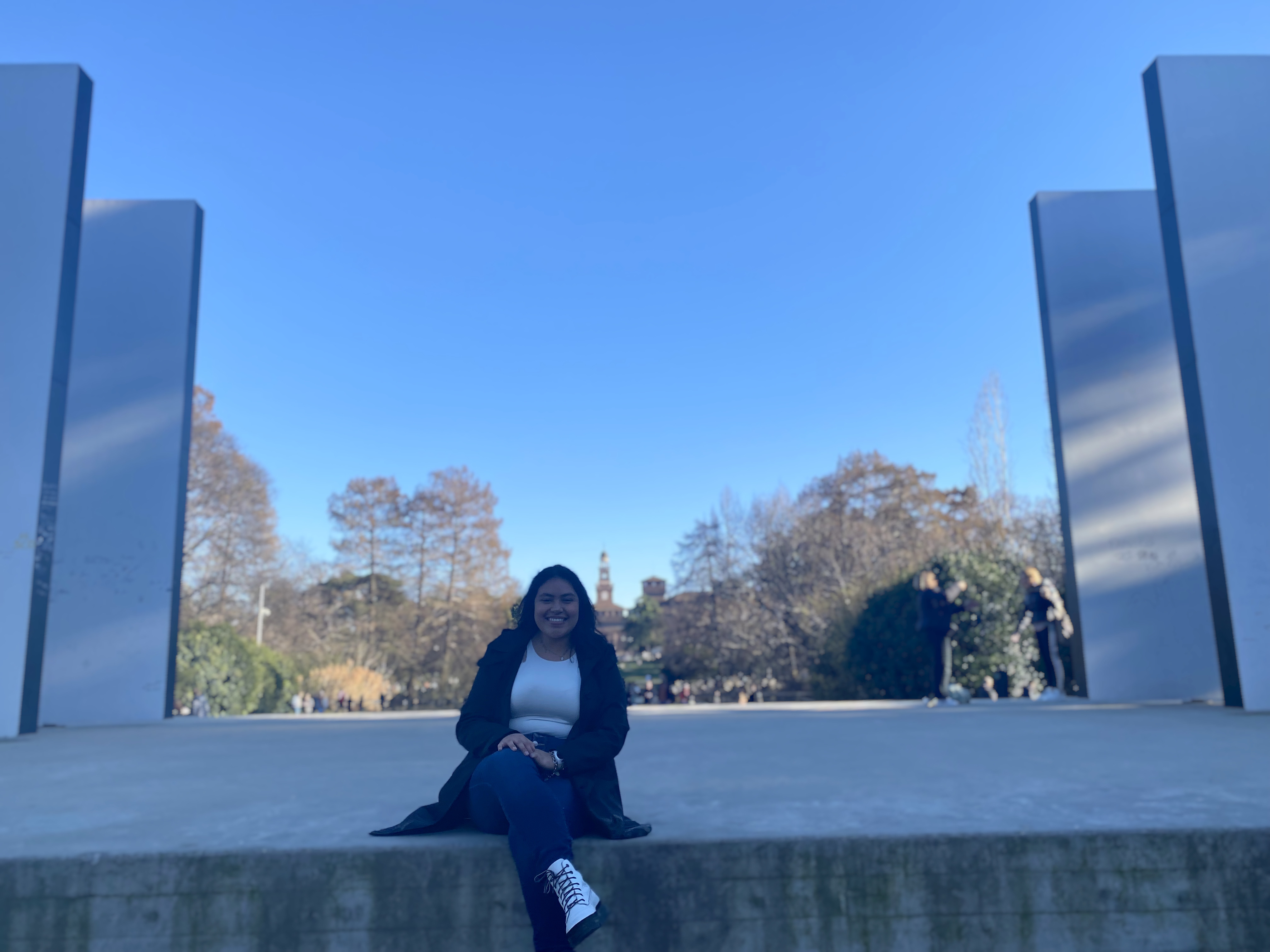
Fani Medel Martinez
Alum – B.A. Communication, 2024
What does it mean to you to be a current first-generation student?
Being a first-generation student means the chance to build a new cycle of opportunities for my family and my first-generation community. Without a doubt, finding mentors at the UW who were from a similar background helped me grow confidence in pursuing my degree. My family's support and encouragement to keep going, despite feeling lost when navigating the higher education system, has made my degree worth it. It's a legacy. I'm proud of becoming a resource to future and current UW first-generation students and being able to help any of my family members interested in pursuing higher education.
What insights would you share with current and future first-generation students?
Just because you can't experience everything, doesn't mean you shouldn't experience anything. Having a first-generation background often feels frustrating. We all hold different identities that overlap with our first-generation background. For me, growing up low-income shaped my experiences as a UW student. At times, it felt like I shouldn't allow myself to have fun and only focus on academics. Having to pay for my college education also felt like I should always prioritize saving every penny for future mishaps. However, the UW experience is more than immersing yourself in textbooks; it is about connecting with others on campus and learning more about yourself through attending the institution. Obtaining a degree should be a joyful experience. Know that it's okay to take care of yourself and your health. Yes, you can definitely plan out that trip abroad and go to that concert after clocking out from your part-time job—it's all about balance. Enjoy being a UW student and pursue your wildest dreams.
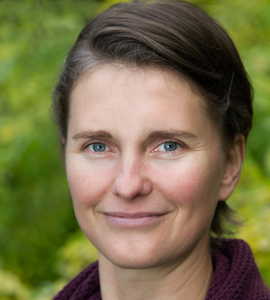
Tasha Mosher
Shared in 2023
Student – M.A. Applied Child & Adolescent Psychology: Prevention & Treatment
What does it mean to you to be a current first-generation student?
I look at being a first-generation student as a great act of Interdependence. That might seem counterintuitive because getting a post-secondary education can require a great deal of independent action. Still, I'm not sure that first-gen students get here alone. A lot of people have listened to me talk through my insecurities around being an older student which has helped me cultivate a greater sense that I could do this.
What brought you to the University of Washington?
I am a graduate student with the Master of Arts in Applied Child and Adolescent Psychology program. I applied a good number of years after completing my undergraduate degree, working a couple different careers, and starting a family. I met a professional who was in this UW program and took the leap to ask him more questions about his educational path. Not only did he tell me about the program, he inspired me to apply. I started at a local college to round out my transcript where I met support staff who walked me through the steps of putting together a graduate school application. I didn't feel like I was alone in the process. I've tried to bring that spirit of supporting others into my program, not only with the clients I serve but also with my fellow colleagues in the program.
What insights would you share with current and future first-generation students?
I would encourage first-gen students to never stop asking questions. I was often far too shy to do this during my undergraduate years. It took a long time to figure out how things worked and even longer to figure out how to succeed in academic spaces. There are UW employees whose sole role is to support you in this journey so find out who they are!
It is normal to feel vulnerable. I still get shaky legs when I go into a new space, but that is mainly because I keep challenging myself to try new things.
Where do you see yourself after graduation?
I have never forgotten the words of a tribal elder I met at the Duwamish Longhouse. She said, "It takes a long time to learn how to be a human." In that spirit, I would like to be a compassionate presence for children and adolescents as they navigate the perplexities of their world. I see these youth as first-generation students to the new frontiers of our future.
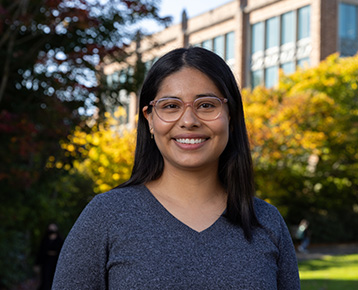
Elizabeth Nova
Shared in 2023
Student – Ph.D. Sociology
What does it mean to you to be a first-generation student?
To me, being a current first-generation student navigating a Ph.D. means owning my space in academia. It's a reminder that the path to this point wasn't easy, but now that I'm here, my educational journey holds immense significance for me, my family, and my community. This isn't just about getting a degree—it's about breaking barriers and creating opportunities for those who will come after me. It also means staying grounded and being profoundly grateful for all the doors that opened through my hard work and determination.
What brought you to the University of Washington?
I came to the UW to pursue my Ph.D. in Sociology. I am grateful for the learning opportunities presented by the UW. In particular, the Social, Spatial, and Dynamic Analysis (SSDA) lab's work on Homelessness has exposed me to a wide range of research roles available like: project manager, front line data collector, and data analyst. I am proud of the strong mentorship, cross-departmental collaboration, and service to King County presented by the lab.
Where do you see yourself after graduation?
After graduation, I hope to continue my journey in academia, dedicating my time to research and teaching. However, I'm also open to exploring other exciting research opportunities beyond the academic sphere that match my passions. The education and research experiences I've gained at the UW equipped me with the skills and knowledge necessary to excel in various research environments, ensuring I can make a meaningful contribution wherever my path may lead.
What insights would you share with current and future first-generation students?
Many times as first-generation students, we can become so focused on navigating our coursework that we might overlook valuable professional opportunities, or feel hesitant to apply for them. I've been there. Now, I find myself working to catch up. So, my advice is this: Don't hesitate – apply for that internship, take a chance on that job opening, sign up for that workshop, and reach out to professors or TAs about research opportunities. Trust that inner voice guiding you. It's a crucial step in making the most of your educational journey.
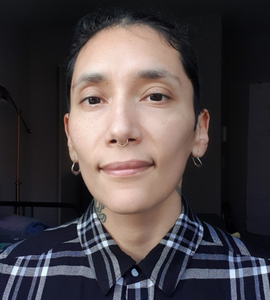
fabian romero
Alum – Ph.D. Feminist Studies, Gender, Women & Sexuality Studies
Graduate Certificate in American Indian and Indigenous Studies, 2023
What brought you to the University of Washington? What does it mean to you to be a first-generation graduate?
Being a first-generation graduate means living a life impossible for my matriarchal line and ancestors. I came from a pueblo in Michoacan, Mexico, with the equivalent of an elementary school education where potential students must leave the pueblo to continue learning. This made it difficult for my relatives to continue a formal education. One of the reasons my parents decided to raise their kids in the United States was to give us more opportunities than they had. My mother encouraged me to continue my education after high school, knowing I had to pursue these opportunities on my own since they hadn't gone to school beyond elementary and had no knowledge of scholarships or methods to pay for college in the US. I did not have much support from my high school teachers to understand these nuances, so I did not pursue college immediately after high school.
I was 24 years old when I found support to apply for college. This support came from other first-generation college students who noticed my curiosity and inquisitiveness and sat with me while I applied. That support led me to graduate with a four-year degree and then be accepted to the University of Washington as a graduate student. Now that I am a professor, I want to continue to pass forward this support to first-generation students, to pursue paths deemed impossible or unlikely because of where we come from and who we are.
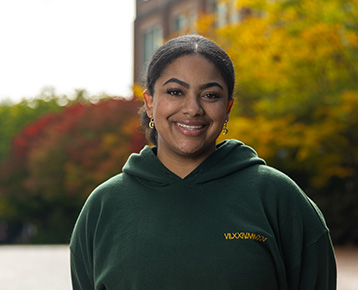
Reyna Smith
Alum – B.S. Speech & Hearing Sciences, 2024
What insights would you share with current and future first-generation transfer students?
Get in contact with your advisor and your teachers! Making connections with faculty is just as important as making connections with other students. Transferring does not have to be a difficult or scary time. Make sure you are using every resource given. If you don't know where to look, that is what your advisor is for. Success for you is success for all those who made the resources available to use.
Where do you see yourself after graduation?
After graduation I see myself, hopefully, at the University of Washington for graduate school. I plan on graduating with my Masters of Science (M.S.) in Speech Language Pathology to become a certified Speech Language Pathologist, working with children who speak English and/or Spanish.
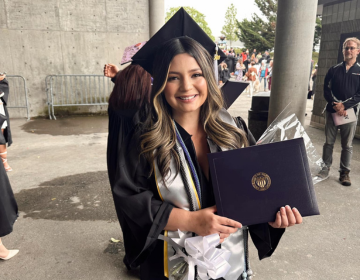
Sara Smith
Alum – B.S. Speech & Hearing Sciences, 2024
What does it mean to you to be a current first-generation transfer student?
To me, being a first-generation student means the ability to bring awareness to the only 3% of aged-out foster youth that go on to obtain a college degree. I aged out of foster care at 17 and college was something that felt unobtainable to me. By being a first-generation student, I can be a beacon of hope for foster youth, spread awareness about educational difficulties foster youth face, and break the cycle of trauma.
What brought you to the University of Washington?
When researching prospective universities, a sense of community was something very important to me. I wanted to find a place that felt like home because most of my foster care experience was spent feeling like I didn't belong. For me, the University of Washington was able to provide that. The relationships that I have built during my time at the UW make me truly feel like part of a family. I am so thankful for the support and encouragement I have received during my time here.
Where do you see yourself after graduation?
I am currently completing a post-baccalaureate degree in Speech & Hearing Sciences. I hope to continue my education with the University of Washington's graduate program so I could eventually open my own speech clinic for those living with communication disorders. I am passionate about giving others a voice to be heard.
What insights would you share with current and future first-generation transfer students?
College can feel daunting to anyone, regardless of your life experience. It's okay to feel lost, it's okay to not have everything figured out, and it's okay to not be okay. Imposter syndrome is something many first-generation students experience throughout college. As you navigate through this, remember you have taken the first step towards a better future by being here and everything will naturally unfold as you move through your academics. In the meantime, utilize every opportunity presented to you, and do not be afraid or embarrassed to ask for help. Like the great Maya Angelou said, "Just like moons and like suns, with the certainty of tides, just like hopes springing high, still I'll rise." You got this!
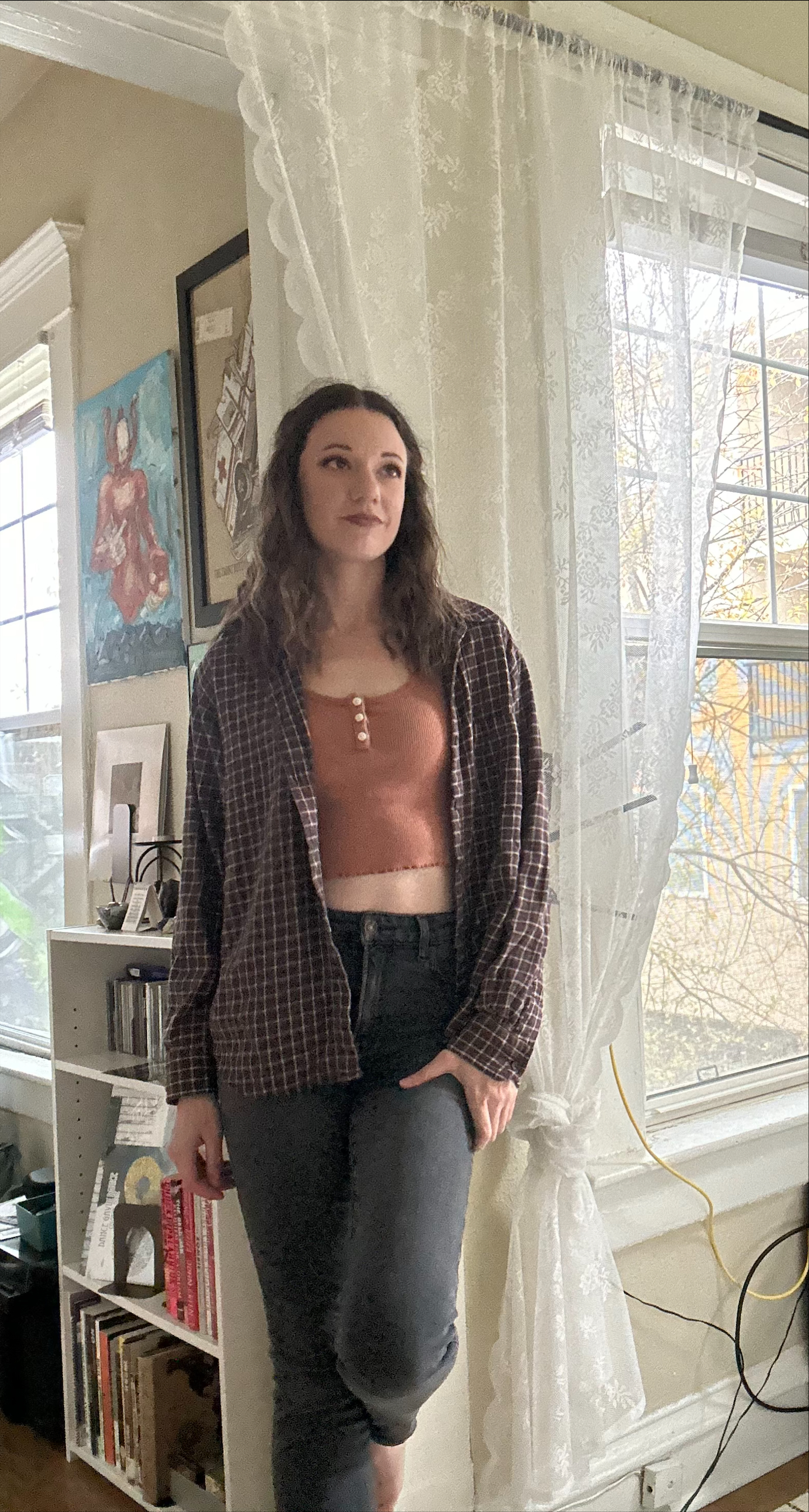
Audrey Mikal
Shared in 2023
Student – B.A. Sociology
Treasurer, First-Generation Leaders in Law (FGLL)
What does it mean to you to be a current first-generation transfer student?
My first-generation, non-traditional, transfer student background is something I am incredibly proud of. It means I am bold and courageous—that I have the tenacity to do what's never been done before. I'm proof that it's never too late to begin chasing after your dreams.
Where do you see yourself after graduation?
I'll be attending grad school to further my research on healing from complex trauma, at both the individual and societal level. I also plan on attending law school to eventually offer free legal advice to young adults without access to traditional support or other resources.
What insights would you share with current and future first-generation transfer students?
First-generation students are pioneers. No one before us had the opportunity to do what we’re doing right now. It requires immense determination and resilience to continue moving forward into this wild unknown. Cultivate your support system, establish routines that nourish your mental, physical, and emotional health, and ask for help every time you need it. Remember: You are legitimate proof that anything is possible and you are worthy of success right now, as you are. Don't let anyone or anything keep you from achieving your dreams. You got this!
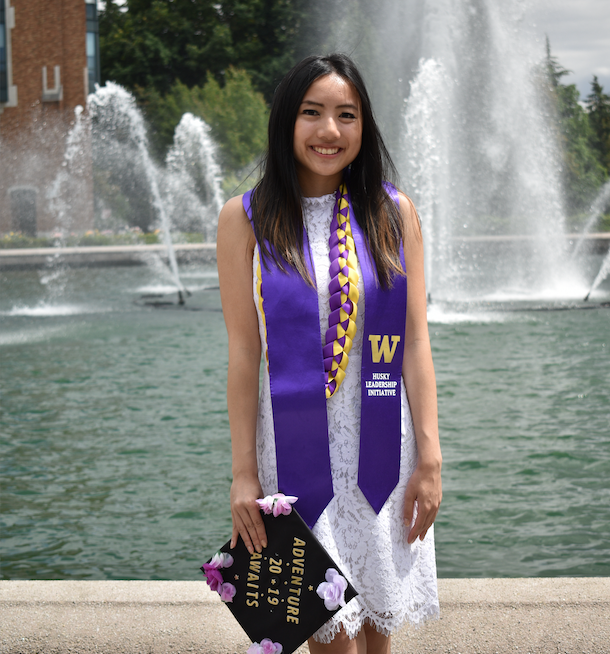
Annie Chan
Alum – B.A. Communication, 2019
Digital Communications Specialist, College of Arts & Sciences
First-Generation Storytelling Celebration Collaborator
How did the experience as a first-generation college student impact your career journey experience?
Being a first-generation alum from the University of Washington will always be one of my most prideful experiences. I still remember the feeling of walking onto campus for the first time and not knowing what was ahead of me, but I was grateful to be able to be at an incredible university where I can lead the path in my family. I am proud to say that my Husky experience pleasantly exceeded all that I had imagined. The UW community allowed me to embrace my first-gen identity and empowered me to seek opportunities and networks. From the welcoming staff and faculty to inspirational peers, this community really provides spaces for you to find your passion and build meaningful connections.
The Department of Communication was a supportive space for me to connect with incredible advisors and internship opportunities. My drive to make an impact in my community and help others led me to seek out opportunities and I found myself involved with UW First Year Programs as a Transfer Ambassador and Dawg Daze Leader. These opportunities made me feel more connected to the UW and allowed me to have a voice. My favorite part about being involved at the UW was being able to help first-year students by connecting them to resources and ensuring that they felt a sense of belonging at the UW. These experiences truly made me feel a sense of community and offered safe spaces for me away from home.
Today, I continue to tell people that I wouldn’t be where I am today if it weren’t for these opportunities and if I didn’t take a leap and go for them. Being able to feel the impact I made in the UW community as a student has made me feel more connected to the UW. Navigating my early career, I wanted to continue making an impact and it made sense to me to return to the UW to continue connecting with the UW community. It has been a pleasure connecting with fellow alumni as a UW Alumni Association GOLD (Grads of the Last Decade) Councilmember. It has also been a full circle moment as I joined the Marketing & Communications team at the College of Arts & Sciences, a special place that has really shaped my journey here at the UW.
What would you say about working on the College of Arts & Sciences First-Generation Storytelling Celebration?
This First-Generation College Celebration project is extremely meaningful and special to me. It has been so touching to read all the different first-generation experiences within the UW community. If I had to describe this community with just a few words, I would say that we are courageous, driven, resilient, and inspirational. This project strengthens our entire UW community because it really empowers the voices of first-generation students and shows that while all our journeys are different, we have similar passion and pride, and willingness to make an impact in our community and beyond. I am confident that these stories will inspire so many in our community and I look forward to seeing many more stories to come.
What insights would you share with current and future first-gen students?
When opportunities arise and you’re unsure, I highly recommend giving them a try. I knew my time at the UW was going to go by quickly, so I didn’t want to miss out on great opportunities that could positively change my life. Most of the experiences that allowed me to grow the most as a student were the ones that were outside of my comfort zone. Looking back, I am so grateful that I went for them.
The highlights of my Husky experience extend beyond classrooms as I developed meaningful connections with incredible mentors and peers across campus, and participated in groups that I will always be grateful to have been a part of. I wouldn’t be where I am today if I didn’t take leaps, get out of my comfort zone, and try new things while being surrounded by new faces. Tap into your passions and curiosity, and you may find yourself learning new things and meeting new people that you did not expect coming into this journey.
More Stories
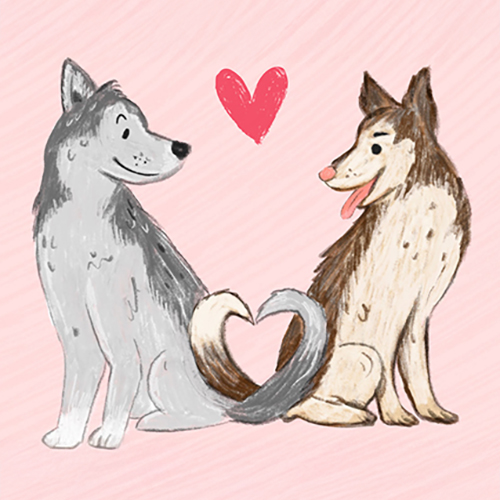
Finding Love at the UW
They met and fell in love as UW students. Here, 10 alumni couples share how they met, their favorite spots on campus, and what the UW still means to them.

A Love of Classics and Ballroom
Michael Seguin studied Classics at the UW and now owns Baltimore's Mobtown Ballroom. The two interests, he says, are more connected than they might seem.

Bringing Music to Life Through Audio Engineering
UW School of Music alum Andrea Roberts, an audio engineer, has worked with recording artists in a wide range of genres — including Beyoncé.
